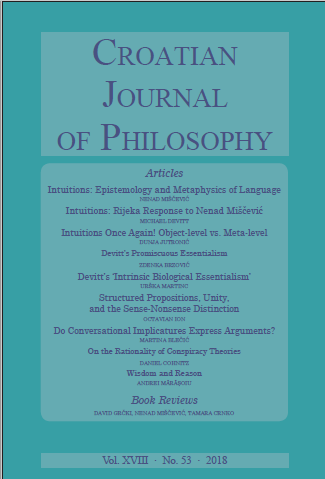On the Rationality of Conspiracy Theories
On the Rationality of Conspiracy Theories
Author(s): Daniel CohnitzSubject(s): Epistemology, Logic
Published by: KruZak
Keywords: Social epistemology; conspiracies theories; normativity of rationality; epistemic authority; conspiracy theory of society;
Summary/Abstract: Conspiracy theories seem to play an increasing role in public political discourse. This development is problematic for a variety of reasons, most importantly because widespread belief in conspiracy theories will undermine the institutions of open societies. One of the central questions that will need to be answered here if we hope to find out why conspirational thought is recently gaining such support and to find out how to respond to it, is the following: what mindset leads to the belief in conspiracy theories? People who believe in conspiracy theories are often ridiculed as nutcases, tinfoil hats, and paranoid crackpots, while they portray themselves as particularly critical, better informed and enlightened responsible citizens. Finding out which of these characterizations is correct is crucial for coming up with the appropriate response to the rise of conspirational thought. In this article, I want to discuss this question and the phenomenon of conspirational thought in two respects. First, I want to explain how philosophy, and epistemology in particular, is essential for understanding the phenomenon and for developing a strategy to deal with the harmful kind of conspirational thought. Secondly, I want to show how epistemology in turn can learn from studying this phenomenon.
Journal: Croatian Journal of Philosophy
- Issue Year: XVIII/2018
- Issue No: 53
- Page Range: 351-366
- Page Count: 16
- Language: English
- Content File-PDF

